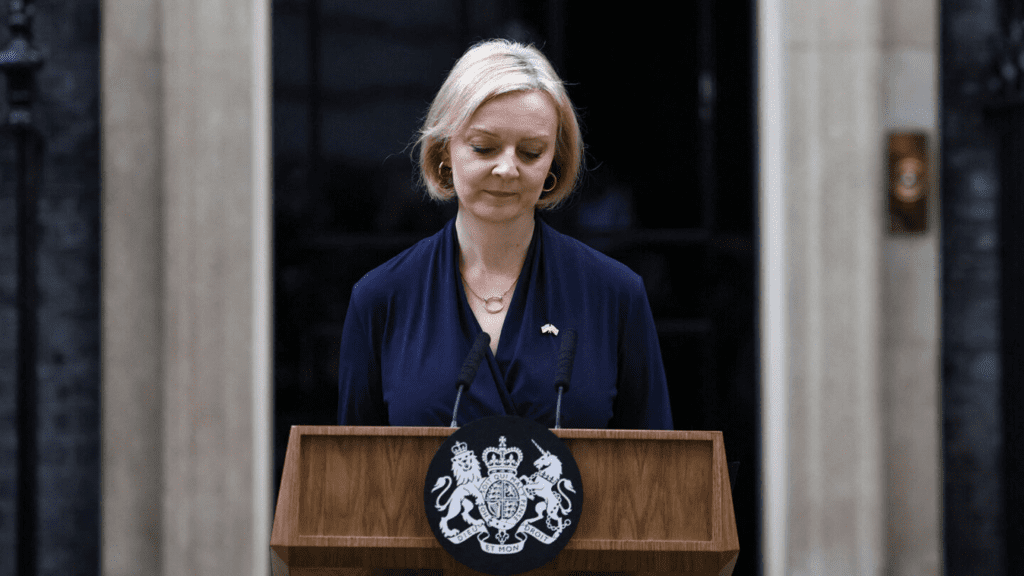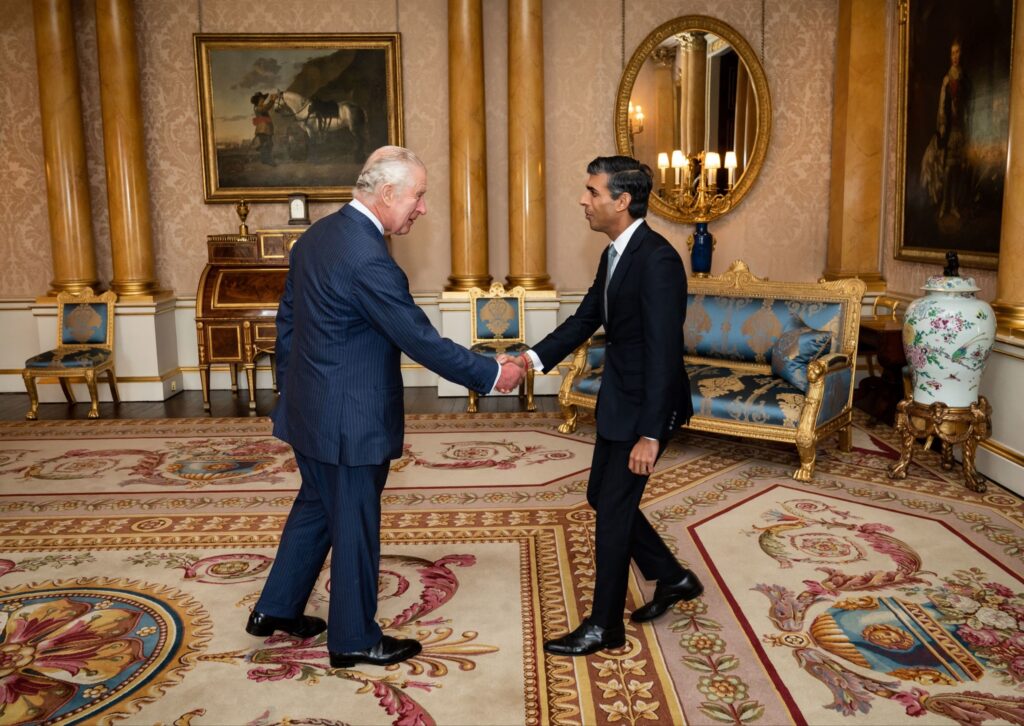UK politics in shambles, again
Never has UK politics appeared as irreparably dysfunctional as over the past two months.
At the beginning of September Liz Truss assumed the office of UK Prime Minister that Boris Johnson had disgraced for the past three years. Six chaotic weeks later (during which, bizarrely, losing the head of state after her 70 year-long reign was the least disruptive event) she was forced to resign and replaced by yet another Tory Prime Minister.
Rishi Sunak was installed by the Parliamentary Tory Party after Truss tanked the UK economy, crashed her party in the polls and subsequently lost support of her MPs. He is the fifth Tory Prime Minister in just six years and the tenth Tory Prime Minister Scotland didn’t vote for since the 1950s.
A general election is overdue, but unsurprisingly the party that has been comfortable disrespecting the mandate for an independence referendum in Scotland feels equally comfortable denying the British public a vote as long as their poll numbers are abysmally low, even though two governments have collapsed since the last general election.
Liz Truss was eager to take advantage of so-called “Brexit freedoms”. Following two weeks of mourning for the Queen, Truss’s government came out all guns blazing with a mini-budget so economically insane that the UK economy was immediately torpedoed into freefall, the pound sank to a 50 year low, and investors were selling British state bonds so rapidly that for a few days their interests rates were the worst in Europe.
Despite weeks of financial turmoil, Truss stubbornly refused to change course. When she was finally forced to sack her chancellor and saw her policies reversed one by one by his successor, she was openly ridiculed by members of her own party, while the UK press was wondering whether she would outlast a lettuce (she didn’t). Forced to resign, Truss used her final speech to insist that she had been right all along. It was the undignified exit of a politician who had destroyed much and learned nothing.

Liz Truss during her last speech outside Downing Street
Liz Truss’ downfall, though historical in its rapidity (her government being the shortest ever in British history) bore resemblance with that of the last four Tory premierships, which all ended not after a defeat in a general election but because the PMs lost the support of their own party. Most of this disunity is rooted in a dysfunctional debate over the UK’s relationship with the rest of Europe. Brexit, whose ultimate objectives were never clarified nor agreed among its proponents, hasn’t restored Britain to the “glory” of its Empire past. Instead, the UK’s exit from the EU has brought political instability, economic strife and a vastly diminished international standing.
While the UK is in chaos, Scotland calmly plans its future
Prior to Scotland’s independence referendum in 2014, political stability, economic strength, membership of the EU and more generally the UK’s international standing were the main arguments put forward by Unionists. No one can deny that Brexit has significantly undermined each and every one of these arguments, reinforcing the legitimacy for a new independence referendum that the Scottish electorate has democratically demanded.
In stark contrast to the complete failure of successive UK governments to plan for Brexit and to implement it responsibly, the Scottish government plans for independence with due diligence and is serious about forging strong political, economic and cultural ties with all European countries. The overriding aim is to ensure that an independent Scotland can find political and economic stability within the EU.
With this aim in mind, the government recently presented the third instalment of the Building a New Scotland series which aims to provide a structured plan for independence in order to give Scottish citizens the information they need before making an informed choice about Scotland’s future. While the first two papers discuss how to increase fairness and renew democracy through independence, the third one offers a detailed economic plan for an independent Scotland in Europe.
The Scottish government proposes setting up a new currency to escape Sterling turbulence “as soon as practicable” after independence. It furthermore commits to establishing a Building a New Scotland Fund to make massive infrastructure investments. The paper also includes a plan for diversifying Scotland’s electricity-generating capacity in order to step up the transition to net-zero and to make better use of Scotland’s abundant natural energy resources. Crucially for our campaign, it reaffirms the intention to immediately apply to rejoin the EU as an independent country.
Rishi Sunak, the billionaire Brexiteer richer than the King
While the UK is awaiting the new government’s proposals for the current financial crisis, the economic situation remains gloomy, with mortgage and inflation rates at the highest in decades, a recession looming, public debt spiralling upwards and too many people having to choose between heating and eating.
The decisions on how to tackle the economic crisis will be made by yet another Prime Minister that Scotland didn’t vote for and whose political positions couldn’t be further removed from those of the majority of the Scottish people.
In principle, Rishi Sunak’s premiership should be something to celebrate. The son of Indian parents who emigrated to the UK from British protectorates in East Africa, he is a Hindu and the UK’s first non-white Prime Minister. However, his privileged journey is by no means comparable to that of other Brits with an Asian background. Take London’s Mayor Sadiq Khan, the son of a seamstress and bus driver, who attended state schools and a local university, then embarked on a political career, which, after twenty years as councillor and subsequently MP, culminated in becoming Mayor of London. Meanwhile Sunak attended one of the most expensive schools in England before pursuing the same degree in Oxford as many other Prime Ministers. A career in finance followed, which enabled Sunak to accumulate enormous wealth, including during the financial crisis in 2008. Nothing however proved as lucrative as his marriage to Akshata Murthy, the daughter of billionaire Narayana Murthy, one of the richest men in India and friend of Prime Minister Narendra Modi.

Rishi Sunak, a billionaire Brexiteer, is richer than King Charles
Presumably helped by his wealth and connections, Sunak’s rise in politics was meteoric: first entering Parliament in 2015, he assumed a small ministerial role under Theresa May in 2018, was promoted by Boris Johnson to Chief Secretary of the Treasury in 2019, and then again in 2020 to the role of Chancellor, not least because he was on good terms with Dominic Cummings, Boris Johnson’s chief advisor at the time.
Like Cummings, Sunak is a Brexiteer, who endorsed Boris Johnson’s aggressive approach to the EU, supported breaching the Northern Ireland Protocol and deporting refugees to Rwanda. It was only last July, when it became no longer politically advantageous to stand by Johnson, that Sunak suddenly discovered moral distaste and swiftly abandoned the sinking ship. He launched his bid to succeed Johnson with a video that had been filmed months before his resignation.
Sunak’s calculated approach in curating his public persona has proved successful in English media outlets, where he is portrayed as hardworking and relatable. This image is at odds with his enormous private wealth and lack of social responsibility in its management. Earlier this year it emerged that Sunak’s wife enjoyed “non-domiciled status” in the UK, which meant that she could forfait paying taxes on her overseas earnings, a trick that saved her millions of pounds each year.
After assuming office, Sunak promised to deliver “compassionate” politics, then went on to appoint Suella Braverman as Home Secretary. Braverman reflects fondly on the British Empire, lists breaching the Northern Ireland Protocol among her proudest achievements and in a recent speech shared her dream: seeing planes take off that are deporting refugees to Rwanda, never to return. Scotland’s First Minister Nicola Sturgeon had this response:
 click on the image to watch the video
click on the image to watch the video
Meanwhile, we await the Supreme Court verdict
In his first Parliamentary appearance, Sunak evaded a question from Alyn Smith MP about the UK government’s continued refusal to respect the Scottish people’s mandate for a new independence referendum. Yet, the matter is out of his hands as the UK Supreme Court is discussing whether the referendum planned by the Scottish Government for the 19th October 2023 would be legal in the absence of consent from the UK Prime Minister.
Their decision is of fundamental importance to the future of Scotland. For this reason, Lesley Riddoch has called for a big demonstration in front of the Scottish Parliament for the day of the judgement, which, according to the information available to us at this stage, will likely happen on a Wednesday before Christmas.
Would you like to take part in European action in solidarity with Scotland on the day of the Supreme Court judgement? Would you be willing to join a gathering in support of Scotland’s right for self determination in your European city?
We would love for you to get in touch! Send us an email to info@europeforscotland.com
And if you haven’t done so already: sign our open letter asking EU leader to prepare to welcome Scotland back in the EU.
Let us show our Scottish friends we’re standing with them, while Scotland’s democratic future and European destiny are at stake.
